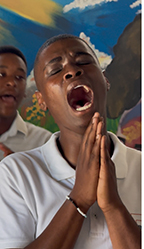A Message From The Publisher
By Bobby R. Henry, Sr. Publisher, Westside Gazette
Travel has a way of disrupting your comfort, resetting your compass, and confronting you with truths you can’t unsee. While moving through parts of South Africa from Johannesburg’s dense townships to the sprawling informal settlements that stretch farther than the eye can see, I witnessed poverty on a scale that wounds the soul. Abject conditions, tin-roof shacks pieced together with determination, children navigating dirt paths barefoot with laughter still somehow intact.
Yet in the middle of this struggle, I saw something that left me humbled: a fire in the people.
Despite generations of structural injustice, colonialism, apartheid, economic isolation so many Black South Africans remain determined not to let their circumstances define the ceiling of their existence. They greet you with dignity. They walk with purpose. They hustle with creativity. The poverty is real, but so is the refusal to surrender to it.
And as I watched them, I couldn’t help but draw the painful parallel to our own communities back home.
Two Worlds, One Struggle: Government Neglect and Institutional Abandonment
South Africa’s poorest communities, much like many Black urban neighborhoods in America, suffer from an old, familiar disease: government overlook.
- Underfunded schools •Crumbling infrastructure •Limited job pathways
- Political leadership that shows up in election season and disappears right after
In both countries, the powers that be have learned how to normalize certain people’s suffering. Both have crafted entire systems in which poverty is not an emergency—but an expectation.
Yet, there is a difference. A noticeable one.
Where the Fight Still Burns
In South Africa, I saw people who understood their condition, yes but refused to bow to it.
I saw Black men and women who still believed deeply in the possibility of transformation. Who still possessed that hunger, that drive, that interior fire to rise.
The government hadn’t beaten the fight out of them.
They were not waiting to be saved they were preparing to stand.
In America, meanwhile, too many of us through exhaustion, disappointment, systemic sabotage, and generational trauma have begun to internalize our circumstances as final.
Where once we said, “We shall overcome,” now we whisper, “Maybe this is just how it is.”
Where once we marched, protested, organized, and demanded, now we are told to “be realistic.”
To “stay in our place.”
To settle.
A dangerous resignation has crept in. Not universally, but enough to be felt.
What Happened to Our Fight?
It is not that Black Americans lack strength we have always been the backbone, the builders, the creators, the culture-makers of this nation.
But somewhere along the way:
- Our schools were stripped. •Our neighborhoods over-policed. •Our health ignored.
- Our voting rights attacked. • Our movements infiltrated. • Our economic foothold uprooted.
We have been stretched thin, not defeated—but stretched.
And when a people are stretched long enough, grief can feel like destiny.
Yet witnessing the resilience of Black South Africans reminded me of something powerful:
The fight is not dead, it is dormant.
And perhaps seeing their example is the spark we need to wake it up.
The Lesson We Must Bring Home
What I saw in South Africa was not perfection. Poverty is poverty pain anywhere should trouble the conscience everywhere.
But I saw a spirit untouched by surrender.
A belief, even in the rubble, that rising is still possible.
We in America must reclaim that. We must reignite it. We must teach it.
We must refuse to internalize the limits placed upon us by systems that were never built to serve us.
Our ancestors fought too hard, endured too much, survived too long for us to believe that this whatever “this” may be in our city or neighborhood is the end of our story.
A Call to Rise Again
As I continue my journey through Africa through its history, its struggles, its triumphs I am reminded of one truth:
Black resilience is global.
It transcends borders, languages, flags, and governments.
And if our brothers and sisters thousands of miles away, living in conditions many Americans cannot even imagine, still find the strength to rise, then so can we.
Not because it’s easy. Not because the system is fair. But because the fight is in our DNA.
It always has been.
And now, more than ever, we must reclaim it together.
A Moment That Will Stay With Me
One evening in South Africa, a young man performed with his dance troupe—rhythmic, powerful, expressive. During the performance, he began to moan, to cry out in a language unfamiliar to my ears. Though I did not understand the words, something in me recognized the emotion.
I felt his yearning. I felt his struggle. I felt his prayer as if it were rising from some place deep inside my own soul.
Afterward, I asked the interpreter, “What was he saying?”
The interpreter looked at me and replied, “He was praying.”
And in that moment, I understood:
If he can pray through poverty…If he can pray through oppression…If he can pray through conditions meant to break him…
Then we, too, must pray.
Pray for our communities. Pray for our children. Pray for our country. Pray for the fight to rise again within us.
Because prayer is not surrender—it is preparation.
And like that young man’s cry, our prayers must become our power. Our power must become our movement. And our movement must become our rise.
We have the strength. We have the history. We have the ancestors. And yes—we still have the fight.
